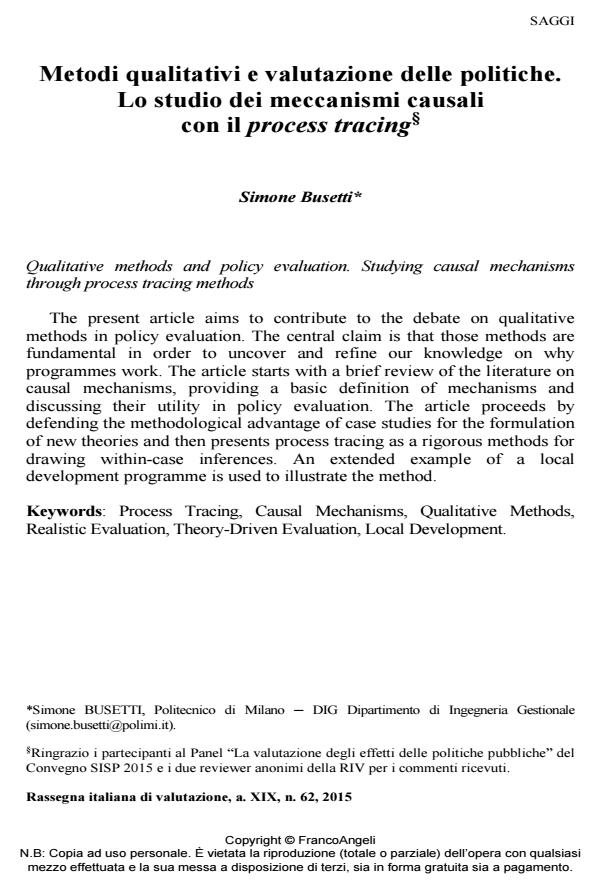Qualitative methods and policy evaluation. Studying causal mechanisms through process tracing methods
Journal title RIV Rassegna Italiana di Valutazione
Author/s Simone Busetti
Publishing Year 2016 Issue 2015/62
Language Italian Pages 20 P. 45-64 File size 442 KB
DOI 10.3280/RIV2015-062005
DOI is like a bar code for intellectual property: to have more infomation
click here
Below, you can see the article first page
If you want to buy this article in PDF format, you can do it, following the instructions to buy download credits

FrancoAngeli is member of Publishers International Linking Association, Inc (PILA), a not-for-profit association which run the CrossRef service enabling links to and from online scholarly content.
The present article aims to contribute to the debate on qualitative methods in policy evaluation. The central claim is that those methods are fundamental in order to uncover and refine our knowledge on why programmes work. The article starts with a brief review of the literature on causal mechanisms, providing a basic definition of mechanisms and discussing their utility in policy evaluation. The article proceeds by defending the methodological advantage of case studies for the formulation of new theories and then presents process tracing as a rigorous methods for drawing within-case inferences. An extended example of a local development programme is used to illustrate the method.
Keywords: Process Tracing, Causal Mechanisms, Qualitative Methods, Realistic Evaluation, Theory-Driven Evaluation, Local Development
Simone Busetti, Metodi qualitativi e valutazione delle politiche. Lo studio dei meccanismi causali con il process tracing in "RIV Rassegna Italiana di Valutazione" 62/2015, pp 45-64, DOI: 10.3280/RIV2015-062005